Artist: Burzum Album: Hvis lyset tar oss
Year: 1994Duration: 44:31
Burzum's Hvis lyset tar oss: A Dark and Haunting But Innovative Album
Black metal is often portrayed as a cringe-worthy and controversial genre, commonly associated with Satanism, violence, and other extreme behavior. However, not all black metal bands are created equal, and not all of them use their music as a platform for shock value and rebellion. One of the most intriguing and enigmatic figures in the history of black metal is Varg Vikernes, also known as Burzum, who gained notoriety in the early 1990s for his raw and atmospheric compositions, his provocative statements, and his criminal activities. However, despite the scandal and tragedy that surrounded him, Vikernes managed to create some of the most iconic and influential albums in the black metal canon, including Hvis lyset tar oss, which is the focus of this critical review.
To appreciate Hvis lyset tar oss, one must first understand the context in which it was made. Burzum's debut album, Burzum, released in 1992, showcased Vikernes' talent for blending primitive aggression, eerie melody, and atmospheric soundscapes, all recorded with a rudimentary cassette player in the basement of his family's house in Norway. The album was part of the first wave of Norwegian black metal, which emerged as a reaction to the commercialization and globalization of metal in the late 1980s and early 1990s. The scene was characterized by a DIY ethos, a fascination with Norse mythology and pagan folklore, and a militant and elitist attitude towards mainstream society and Christianity. Hvis lyset tar oss was Burzum's third album, recorded in 1993 and released in 1994, and represents a significant departure from the rawness and immediacy of the first two albums. It is a more refined and deliberate exploration of the darker dimensions of the human psyche and nature, a conceptual work that transcends the boundaries of metal and music in general.
The album opens with Det som en gang var, a haunting and ethereal track that sets the tone for the rest of the album. The song features Vikernes' deep and melancholic vocals, layered with acoustic guitars, eerie synths, and a sampled excerpt from a Norwegian folk tune. The lyrics, written in Norwegian, deal with the decay and oblivion of a mythical kingdom, evoking a sense of sadness, nostalgia, and resignation. The next track, Hvis lyset tar oss, is the longest and most symphonic of the album, clocking at over eight minutes. The song starts with a slow and hypnotic riff, backed by a distant and ominous choir, then gradually builds up to a climax of blast beats, distorted guitars, and soaring keyboards. The lyrics, also in Norwegian, describe a world without light, where all life and hope have been extinguished. The song offers a dualistic vision of darkness, as both a destructive and a creative force, a theme that recurs throughout the album.
Another standout track on the album is Inn i slottet fra droemmen, a minimalist and mesmerizing piece that features Vikernes' spoken words and a repetitive electric guitar riff, augmented by occasional drum rolls and synths. The song's title translates as Into the castle from the dream, and the lyrics describe a phantasmagorical journey through a desolate and surreal landscape, where past and present merge. The song's atmosphere and imagery recall the works of the German philosophers Friedrich Nietzsche and Martin Heidegger, who were passionate about the themes of art, myth, and death. The title track and the closing track are also worth mentioning, not only for their musical and lyrical quality, but for their historical and cultural significance. Tomhet (Emptiness) is a mostly instrumental piece that features Vikernes' most avant-garde and experimental side, with dissonant arpeggios, ambient hums, and atonal whispers. The song's title and mood suggest a reflection on the futility and absurdity of existence, a theme that resonates with the existentialist movement in philosophy and literature. The last track, Hvis lyset tar oss (again), is an alternate version of the title track, played at a slower and more atmospheric pace, with an extra ambient section at the end. The song seems to conclude the album with a sense of closure and introspection, as if suggesting that whatever has been experienced and expressed throughout the album, it was ultimately a personal and subjective odyssey.
Critics of Hvis lyset tar oss have pointed out its flaws and limitations, including its amateurish production, its repetitive and derivative riffs, and its overly nihilistic and misanthropic lyrics. However, these critiques miss the point of the album, which is not to showcase technical proficiency or catchy hooks, but to create a mood and a vision that goes beyond words and notes. The album's strength lies in its ability to instill a sense of awe and dread, of beauty and horror, of sorrow and transcendence. The album is not for everyone, and it requires a certain degree of patience, imagination, and openness to appreciate it. However, for those who seek an immersive and visionary experience through music, Hvis lyset tar oss is a masterpiece that deserves to be revisited and re-evaluated.
In conclusion, Burzum's Hvis lyset tar oss is an album that belongs to the pantheon of great and innovative works of music, regardless of genre or era. The album is a testimony to the power and potential of black metal as an art form, as well as to the creative and tormented mind of its maker. The album's themes of darkness, decay, and transcendence resonate with the human condition, and its soundscapes and compositions explore the boundaries of sound and emotion with a rare intensity and subtlety. The album may not be perfect, but it is a work of art that transcends its flaws and its controversies, and that continues to inspire and challenge listeners all over the world.
Other #Death metal albums:
SIMILAR BANDS
balls, from 1 to 5, describe similarity between the two bands
SOMETHING NEW? LISTEN TO RADIOGENRE
SUGGESTED PLAYLISTS



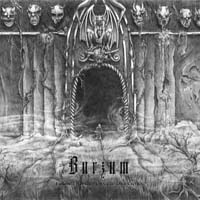
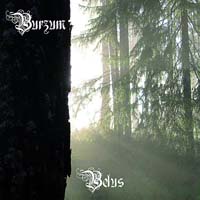
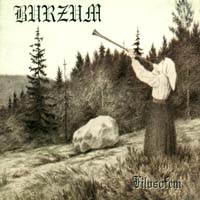


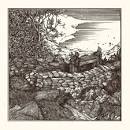
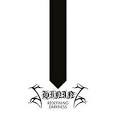
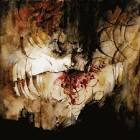
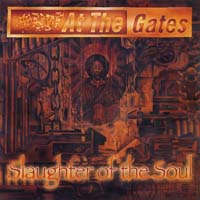
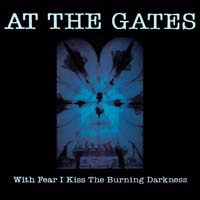
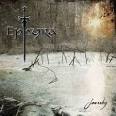
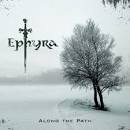


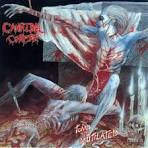










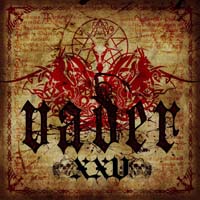
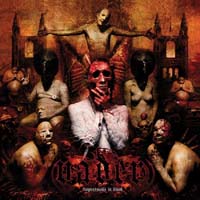
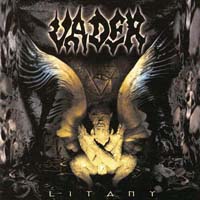

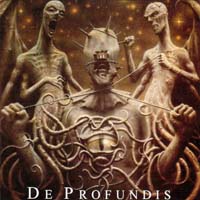



 Rockabilly
Rockabilly Electronic
Electronic Flamenco
Flamenco Rap
Rap Alternative rock
Alternative rock Classic pop
Classic pop Funk
Funk Rock Revelation
Rock Revelation Trap Music
Trap Music Arabic Music
Arabic Music The very best of pizzica
The very best of pizzica Best Christmas Songs
Best Christmas Songs The very best of rocksteady
The very best of rocksteady Through the origins of dub
Through the origins of dub The very best of jazz
The very best of jazz The very best of dance pop
The very best of dance pop The very best of electro dub
The very best of electro dub The very best of italian alternative rock
The very best of italian alternative rock The very best of progressive rock
The very best of progressive rock Around the world
Around the world